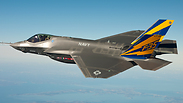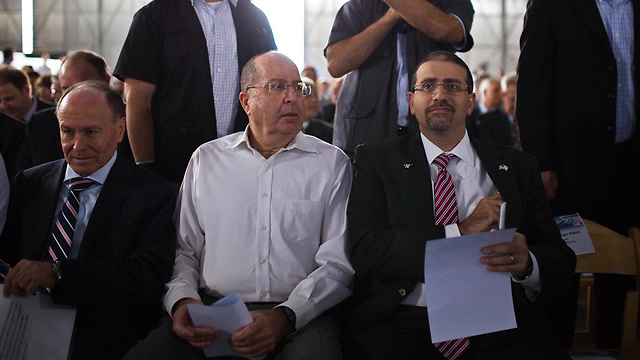
Israel to purchase 14 more F-35 fighter jet amid tensions with US
With political tensions between the US and Israel at record high, Israel announces it will buy cutting-edge fighter jets, set to arrive in Israel in late 2016.
Israel said Sunday it will purchase 14 additional next-generation F-35 fighter jets for approximately $3 billion. The purchase comes amid heightened diplomatic tensions between Israel and the US over a speech by Prime Minister Benjamin Netanyahu.
The deal adds to the fleet of 19 US-made jets already purchased in 2010, the Defense Ministry said. The recent signing with Lockheed Martin Corp. includes an option for 17 more in the future. The first such planes are to arrive in Israel in late 2016.
The F-35 is the Pentagon's most expensive weapons program, with an estimated cost of nearly $400 billion. The program aims to replace a wide range of existing aircraft for the US and several partner countries.
Israel plans for the stealth jet, also known as the Joint Strike Fighter, to replace its fleet of F-16 warplanes and maintain its aerial dominance in the region. The purchase will be funded through the US' military aid to Israel.

Related stories:
- Expect US backlash from Netanyahu's Congress speech, experts warn
- Unwelcome mat: White House tries to counter Netanyahu visit
- US warns it is ready to walk away from Iran nuclear talks
Netanyahu's plan for a March 3 address to a joint meeting of Congress has further strained already tense ties between the US and Israel. Congressional Republicans orchestrated Netanyahu's visit without consulting the White House or State Department, a move the Obama administration blasted as a break in diplomatic protocol. Some Democratic lawmakers say they will boycott the speech.
US officials believe Netanyahu's trip to Washington is aimed primarily at derailing a nuclear deal with Iran, Obama's signature foreign policy objective. While Netanyahu has long been skeptical of the negotiations, his opposition has increased over what he sees as Obama's willingness to make concessions that would leave Iran on the brink of being able to build a nuclear weapon. His opposition has intensified as negotiations go into overdrive with an end-of-March deadline for a framework deal.
US security aid for Israel, as well as cooperation with the military, has only increased, but some experts warn that it could be hindered.
Most Israeli developments in the field of defense are financed by the US – to the tune of more than $3 billion a year. According to Prof. Eytan Gilboa, there have been instances in the past when Washington has suspended the supply of arms, delayed procurement talks and reduced strategic and intelligence cooperation.
"These will be the consequences if Netanyahu is re-elected for another term in office," he says. "If the crisis continues, it could lead to a reduction in the aid or its delay. A large portion of the Iron Dome and Arrow missile systems are US-funded... (as is the) F-35 fighter planes we are set to purchase."
Danny Halperin, Israel's former economic attaché in Washington, notes that Congress determines the aid package to Israel and the administration cannot actually touch it, even if relations are strained. However, he adds, the Obama administration does have ways and means to undermine the aid.
"If the administration is hostile towards Israel, it's no problem to say order X or order Y from a certain industry doesn't meet specific criteria, and Congress can't intervene," Halperin says.
"The defense aid is spent on procurement," Halperin adds. "The administration can always provide excuses for not supplying something that Israel wants even though the money is available. The administration, if it so desires, can always put a spoke in the wheel."
Michal Margalit contributed to this report










